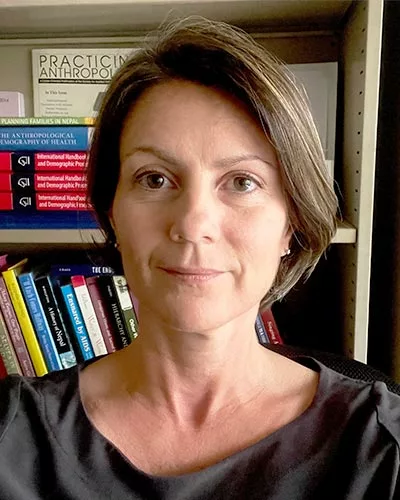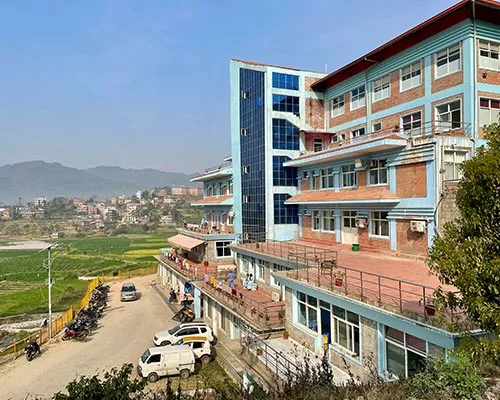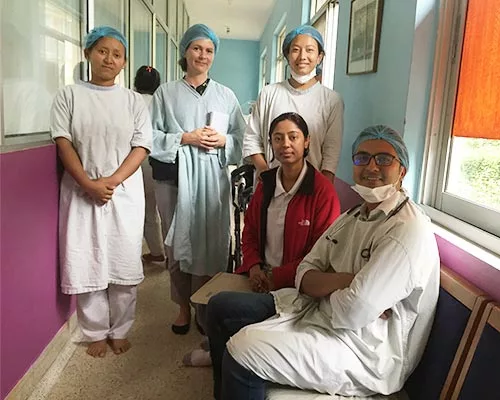Jan Brunson, associate professor of Anthropology at the University of Hawai‘i at Mānoa, has received a Fulbright U.S. Scholar Program award for research in Nepal for the 2024-2025 academic year. She will collaborate with Dr. Suman Raj Tamrakar, head of Obstetrics and Gynecology at Dhulikhel Hospital, a leading rural hospital in Nepal, on research involving the cesarean section – a crucial but often debated aspect of obstetric care.
The global push towards respectful maternity care, which emphasizes practices that recognize needs and preferences and ensures that they can make informed choices, has prompted medical practitioners worldwide to reassess their obstetric practices, particularly regarding cesarean sections (c-sections). While c-sections can be life-saving in situations such as fetal distress or placenta previa, they also pose risks for both mother and child. The procedure is the subject of continuing debate as the medical profession aims to strike a delicate balance in determining the best timing and circumstances for performing c-sections to avoid both underuse and overuse.
“My research aims to understand this balance by exploring the social, economic, and systemic factors influencing cesarean sections in Nepal,” said Brunson. “This project is not just about the numbers or statistics. It’s about gaining deeper insights about the experiences of women and medical practitioners, and improving maternal health care through respectful and informed practices through a better understanding of the model set by Dhulikhel Hospital, a facility committed to providing affordable, quality care and where profit motives are minimized.”
Brunson’s research is guided by her years of documenting stories of Nepali pregnancies involving near misses with maternal mortality due to prolonged labor during home births in contrast to different narratives encountered in Kathmandu where urban families expressed growing concerns about the increasing frequency of c-sections in an area where access is abundant.
As Brunson reflects on the broader impact of her work, she states, “By sharing our findings, we hope to support physicians, midwives, and public health practitioners in their efforts to achieve respectful maternity care. Our goal is to ensure that women and families have greater reproductive knowledge and agency, ultimately improving maternal health outcomes.”
Brunson, who joined UH Mānoa’s Department of Anthropology in 2011, is a medical anthropologist. She has spent over a decade conducting ethnographic research in Nepal, exploring reproductive health and family planning in challenging environments, particularly in resource-poor and disaster settings.
Since 1946, the Fulbright Program has provided over 400,000 talented and accomplished students, scholars, teachers, artists, and professionals of all backgrounds with the opportunity to study, teach, and conduct research abroad. Fulbright recipients exchange ideas, build people-to-people connections, and work to address complex global challenges. Notable awardees include 62 Nobel Laureates, 89 Pulitzer Prize winners, 80 MacArthur Fellows, 41 heads of state or government, and thousands of leaders across the private, public, and non-profit sectors.
Fulbright is a program of the U.S. Department of State, with funding provided by the U.S. Government. Participating governments and host institutions, corporations, and foundations around the world also provide direct and indirect support to the program, which operates in over 160 countries worldwide.
The Department of Anthropology is housed in the College of Social Sciences at the University of Hawaiʻi at Mānoa.


